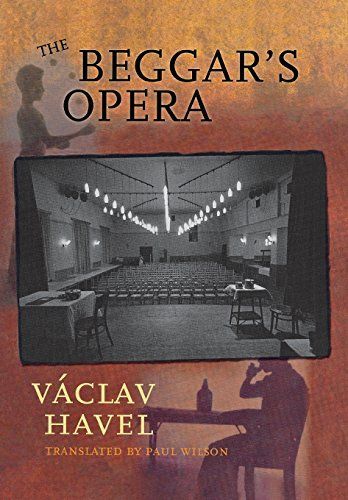
The Beggar's Opera
The Czech President Vaclav Havel, a force on behalf of international human rights and his country's most celebrated dissident, first gained prominence as a playwright. During the period when Havel was blacklisted by the Czechoslovakian government for his political activism, productions of his work in and around Prague were regarded as subversive acts. The Beggar's Opera is a free-wheeling, highly politicized adaptation of John Gay's well-known eighteenth-century work of the same name. The play, reminiscent of Havel's earlier Garden Party and The Memorandum, is up to his best satirical standard. Like the Brecht/Weill Threepenny Opera, Havel's play uses an underworld milieu to explore the intermingled themes of love, loyalty, and treachery. Paul Wilson's new English translation of The Beggar's Opera is lively, idiomatic, and sensitive to underlying linguistic and political issues. The Cornell edition contains an Introduction by Peter Steiner that details the November 1, 1976, premiere of the play in the Prague suburb of Horní Pocernice, the reaction of the Czech secret police, and the measures the government took to punish and discredit those involved in the production. Eleven photographs--of the playwright, the actors, the theatre, and the actual performance--enhance the texture of the book.
Reviews
Atrix @atrix
Kauffie@cupofkauffie
Arianna M@letterarii
Cristina@anvqrd
Roz@irasobrietate
Tanner Evans@tanner
abby donaldson@abbydonaldson
Joshua Line@fictionjunky